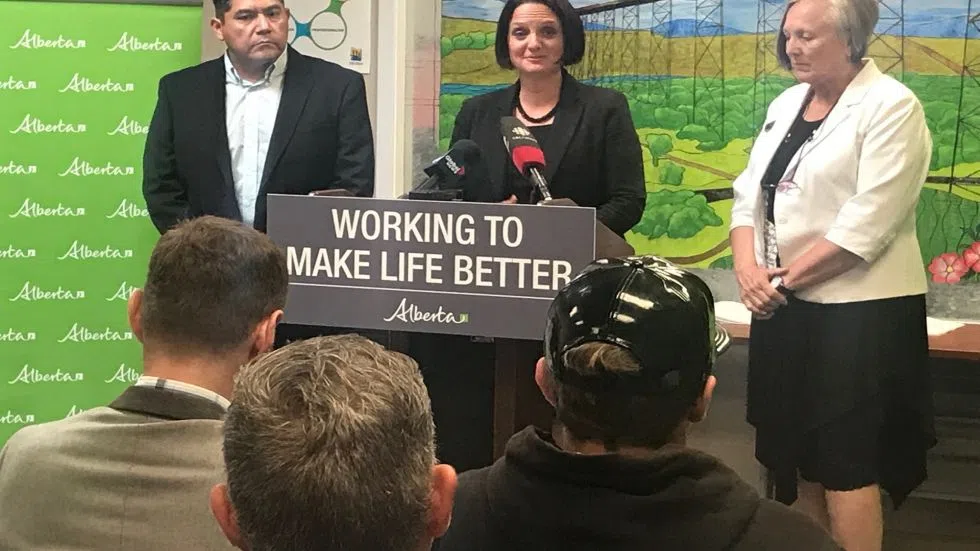
Province announces $4.3 million to fund child intervention and suicide prevention programs
LETHBRIDGE – Children’s Services Minister Danielle Larivee has announced a multi-million dollar, 39-point plan aimed mainly at protecting indigenous children, dealing with racism and reducing the number of indigenous children in care.
Larivee was in Lethbridge Thursday for the announcement to explain that $4.3 million would be immediately provided to implement 16-points of the plan before April 2019.
She says the report addresses the work of the all-party Ministerial Panel in Child Intervention that in 2017, was tasked with recommending ways to improve Alberta’s child death review process and to strengthen the child intervention process. In March, 26 final recommendations were made.
Larivee says children in the province deserve every bit of support they can get to meet their full potential, and those in their care can benefit from additional support.
